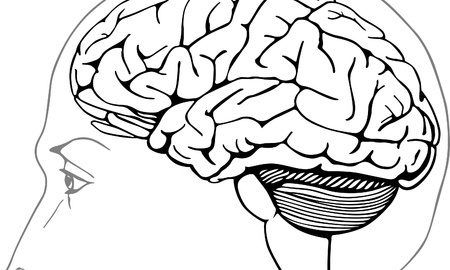Stem Cell Implants in the Brain Could Delay Aging

Scientists at New York’s Albert Einstein College of Medicine have conducted experiments and found that stem cell implants in the brains of mice can stop aging and help the treated animals remain fitter for longer.
What part of the brain controls aging?
The experiments have helped researchers identify that a part of the brain called the hypothalamus is intimately involved in the aging process. The investigators hope to launch trials in humans to see whether similar treatments with neural stem cells can prolong the life of treated individuals.
The scientists discovered that certain cells are present in the hypothalamus of young brains but die off and are nearly completely absent by middle-age. During the experiments, stem cells that can get transformed into healthy young neurons were implanted in the brains of mice to see whether this would slow down the aging process.
What did the stem cell implant experiments show?
The researchers first introduced a toxin into the brains of mice to eliminate the majority of naturally occurring neural stem cells. Over the ensuing months, a battery of tests revealed that the mice fared poorly in social behavior, coordination, endurance, and mental ability (recognition of objects) and life expectancy. In other words, the mice aged faster and died sooner compared to the control animals who did not receive the toxin.
In the next step of the experiment, the researchers implanted neural stem cells into the brains of some of the aging mice. They found that compared to untreated mice, the brains of the mice who received the stem cell implants were healthier. The treated mice were mentally more fit and had a 10-15 percent longer lifespan.
Human Aging: A Scientific Enigma
The work has been described as a major breakthrough by the scientific community. The ability to extend life and help people live longer and healthier has always been the focus of research. An increase in lifespan by 15 percent would mean that a person whose life expectancy is 80 years could live a healthy life into their 90s.
Now that researchers have identified the cells in the hypothalamus that control aging in mice, this has paved the way for human trials. However, before the experiments are repeated in humans, the researchers must produce sufficient quantities of human neural stem cells for implantation into study participants.
Can stem cells delay human aging?
Admittedly, humans are far more complex than mice, but the researchers have understood the fundamental mechanism that causes aging in animals. This is the first step in developing an intervention to stop the aging process in humans. It would appear from these experiments that stem cells can delay aging.
References:
- https://www.theguardian.com/science/2017/jul/26/stem-cell-brain-implants-could-slow-aging-and-extend-life-study-shows


